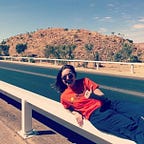Until all of us are free… none of us will be free
“I’ll tell you what freedom is to me. No fear.” Nina Simone
Last year I saw Ben Okri speak about Freedom at a School of Life event. He was discussing his book The Freedom Artist, and how it served as a dystopian fictional warning for a complacency he could see occurring in the world.
He described the boiling frog fable his mother used to tell him. That if you dropped a frog in already boiling water it would immediately jump out because it knew it was in danger, but if the frog was in tepid water that was gradually heated it wouldn’t realise it was being boiled to death.
He said we were the frogs being gradually heated in tepid water. That we weren’t paying attention and that we needed to ‘upwake’. Not wake up, but upwake. A more action-focused awareness of what’s going on. A form of paying attention and taking action.
This word feels incredibly pertinent now. We’ve hit boiling point, and we (white people) need to seek to truly understand the privilege it is to walk in this world without the fear of being socially, economically, mentally, physically, systemically, institutionally discriminated against, abused or murdered for the colour of our skin. We need to yield the power we have based only on the colour of our skin and take action for anti-racist change, in every way we can. Whether through self-education, donations, physical presence, speaking out, conversations with our children and importantly, listening.
The anger erupting isn’t from an incident in isolation. It’s not only about George Floyd or Ahmaud Arbery or Breonna Taylor — as Martin Luther King Jr said once before, “riots do not develop out of thin air”. It’s the ongoing blatant and brutal disregard for human life based on the colour of skin. The archaic belief that whiteness = better than, or that black or brown skin = not human, not worthy of dignity or life. The anger is about the ongoing fight for freedom and justice that Martin Luther King Jr dreamed about, plus so much more pain I can’t possibly pretend to have experienced or describe.
Horrific racism has been part of America’s history for over 400 years, and Australia’s history since colonisation in 1788 where mass killings, genocide, the denial of culture and language took place. Where children were taken from their families through the Stolen Generations that officially continued through to the ’70s and still continues today through systems that remain racially discriminatory when it comes to decision-making about who is fit to be a parent.
Just like in America where there is a disproportionate amount of black people incarcerated versus white people (5.1 times as many in 2016), the rate of Aboriginal people incarcerated is hugely disproportionate to white people despite a massive population imbalance. Aboriginal and Torres Strait Islander people only make up 2% of the adult population, but 29% of the prison population. This is absurd. And it’s something we need to pay attention to, to ‘upwake’, to take action and demand anti-racism in our systems, institutions, communities and people.
We have police brutality and deaths in custody in Australia too. 432 Aboriginal or Torres Strait Islander people have died in police custody since the Royal Commission into Aboriginal Deaths in Custody in 1991. Most recently Kumanjayi Walker, David Dungay, Tanya Day, Joyce Clarke, Veronica Walker. No officer has ever been convicted for these 432 deaths.
In a week that’s supposed to celebrate Aboriginal and Torres Strait Islander cultures, and move the country towards acknowledgement of both the atrocities that happened in the past, and that Australia always was and always will be Aboriginal land, we found out Rio Tinto blew up one Australia’s most important ancient and sacred sites. This drew mere shrugs compared to the global outrage of, say, Notre Dame burning. But bears a far more irreparable and devastating blow to the Puutu Kunti Kurrama and Pinikura people, as well as every one of us missing out on the depth of understanding we could have of the oldest surviving culture in the world. Many of our population not knowing enough about the significance of this to even care.
The media and social media feeds this week remind us there’s still a lot of learning to be done about what’s happened and happening in our own country. It’s time for white Australians to upwake, to self-educate and most importantly to actually care about the black or brown lives that matter, very much, in Australia too.
To share Ben Okri’s wisdom: freedom is mutual. Freedom isn’t freedom when we’re diminishing other humans. And until all of us are free… none of us will be free.
I’ve compiled some resources that have been very valuable. Thank you to all the creators of these works, and people sharing their knowledge.
Educational resources
AIATSIS — https://aiatsis.gov.au/
Books
Am I Black Enough For You? Anita Heiss
Talking to my Country Stan Grant
Dark Emu Bruce Pascoe
Growing Up Aboriginal in Australia edited by Anita Heiss
My Place Sally Morgan
Between the World and Me, Ta-Nehisi Coates
Why I’m No Longer Talking to White People About Race, Reni Eddo-Lodge
Here is a reading list from the New York Times:
https://www.nytimes.com/2019/05/29/books/review/antiracist-reading-list-ibram-x-kendi.html
@nessaturnbullroberts
@senatorbriggs
@nakkiah
@blakbusiness
@clothingthegap
@sar.ra_
@democracyincolour
@desertpeamedia
@nascamob
@alwaysourstories
@blakfulla_bookclub
@abcindigenous
@indigenousx
Articles:
Practical ways you can support Aboriginal lives matter
We must bear witness to black deaths, Amy McQuire
https://amymcquire.substack.com/p/we-must-bear-witness-to-black-deaths
